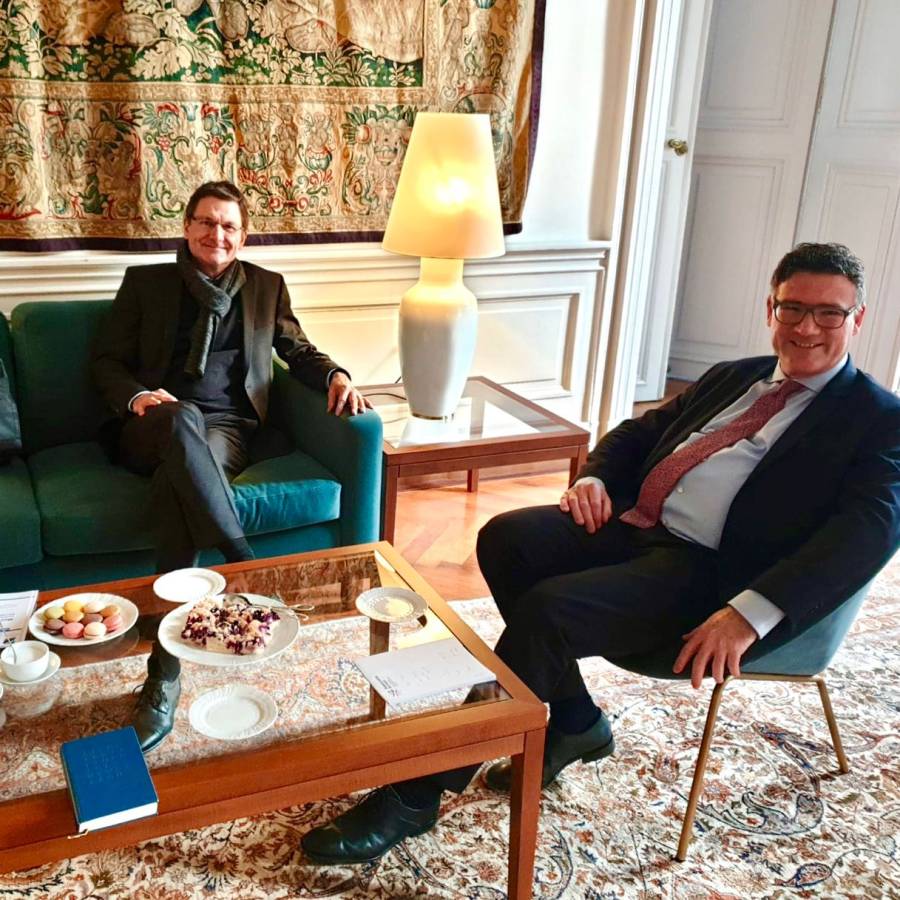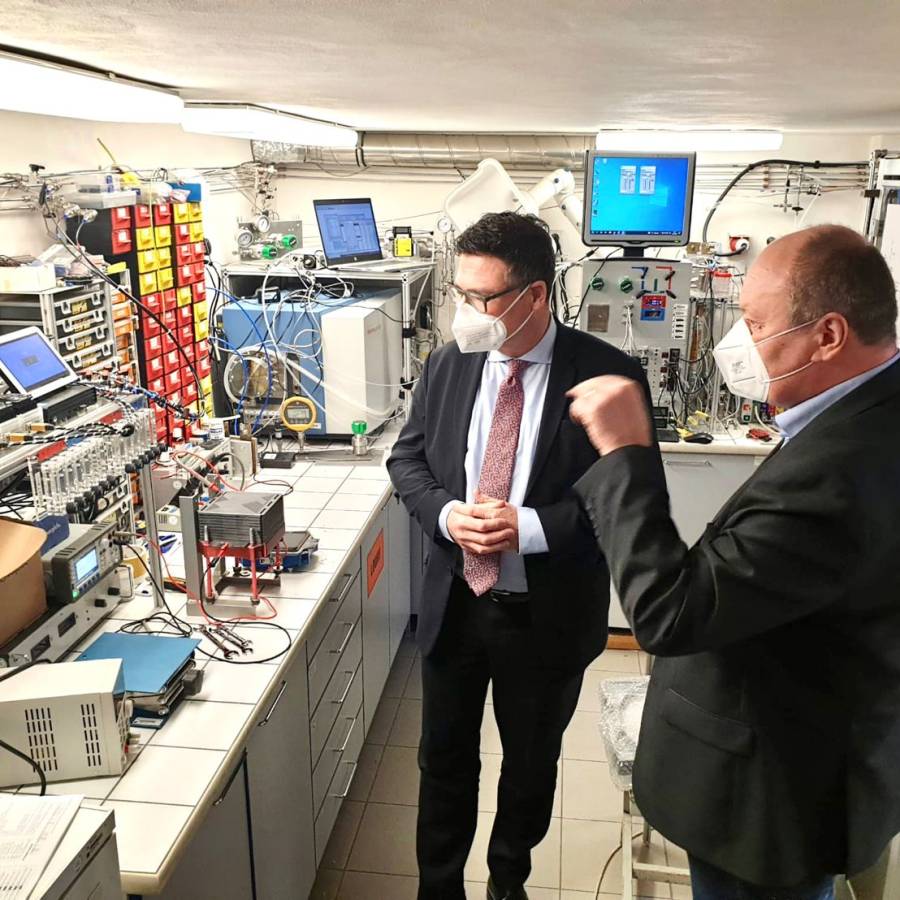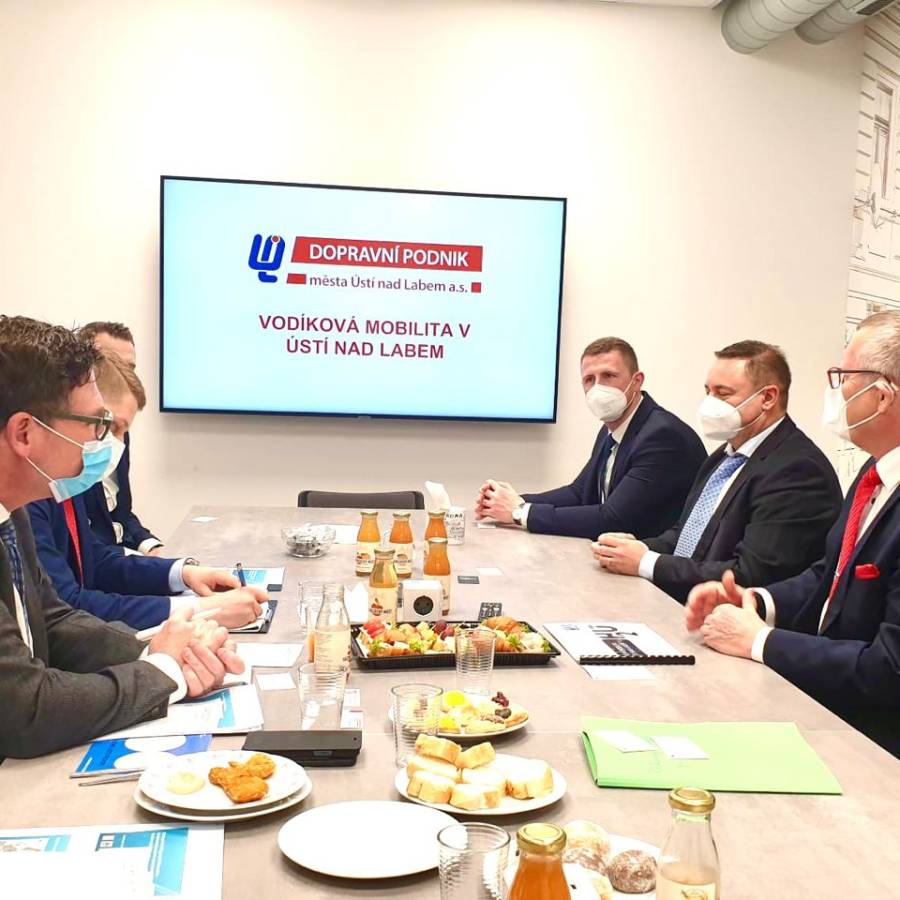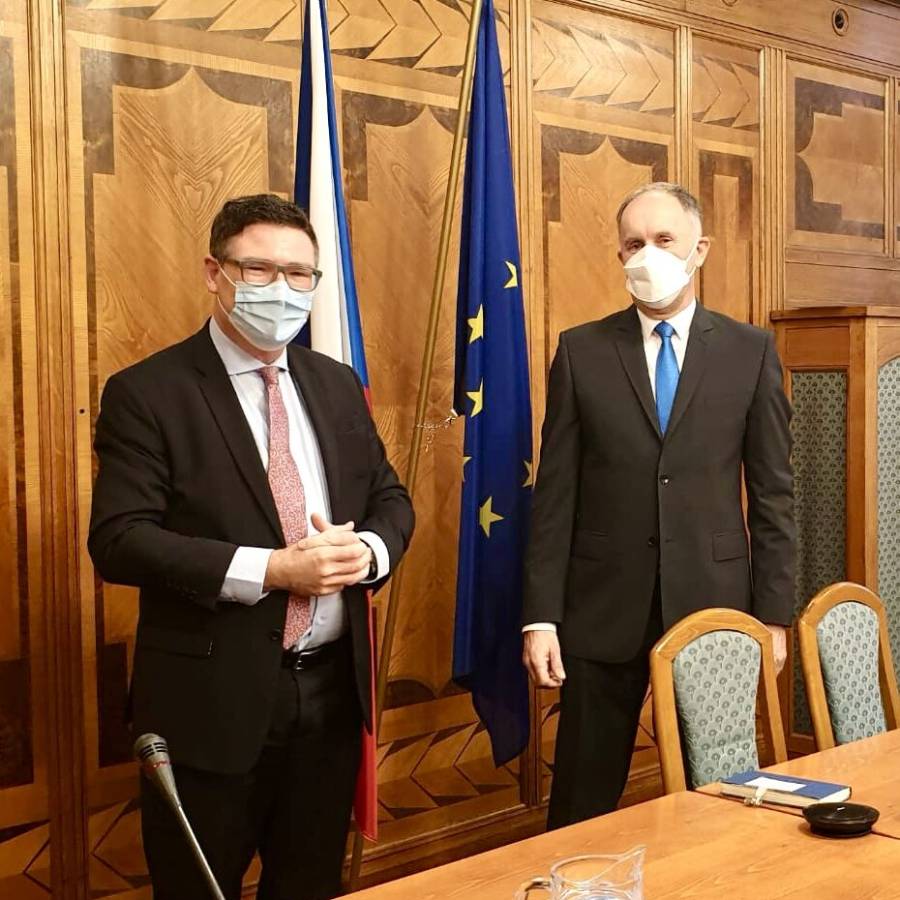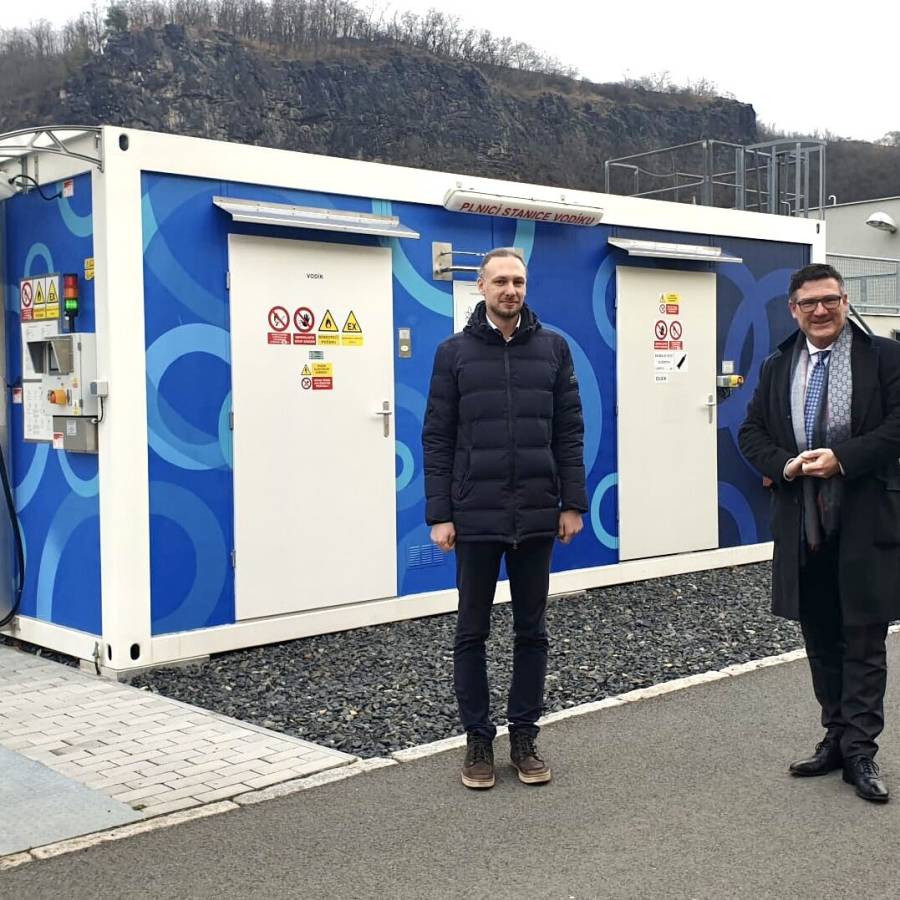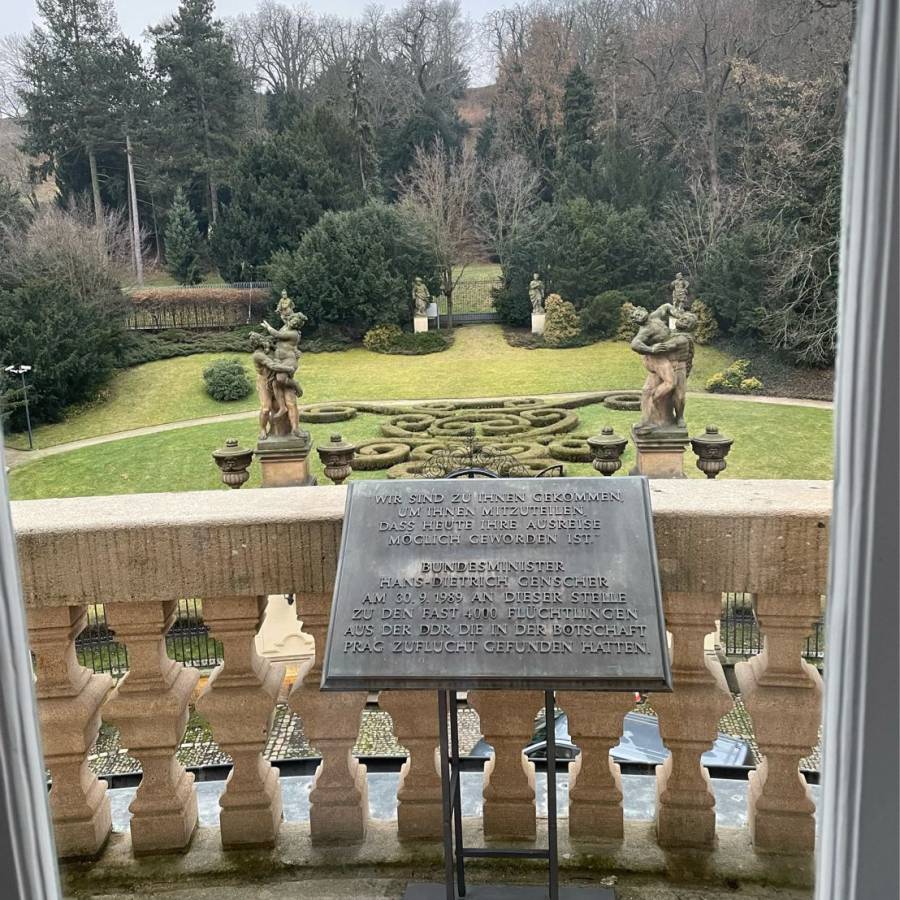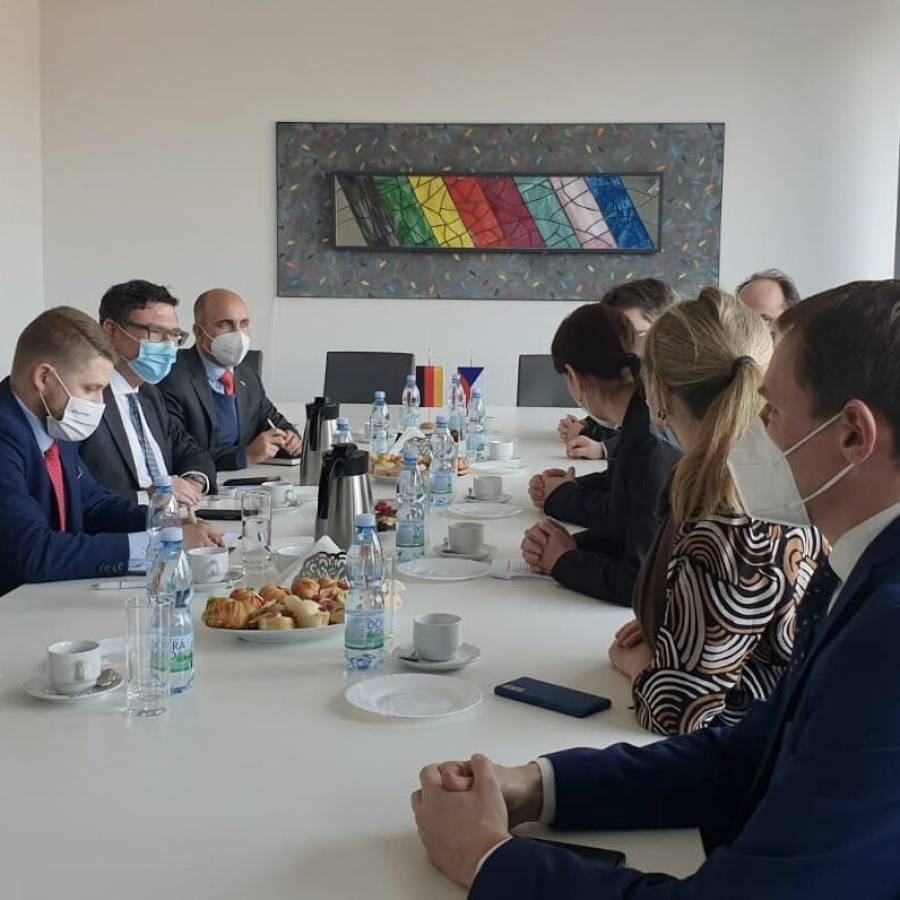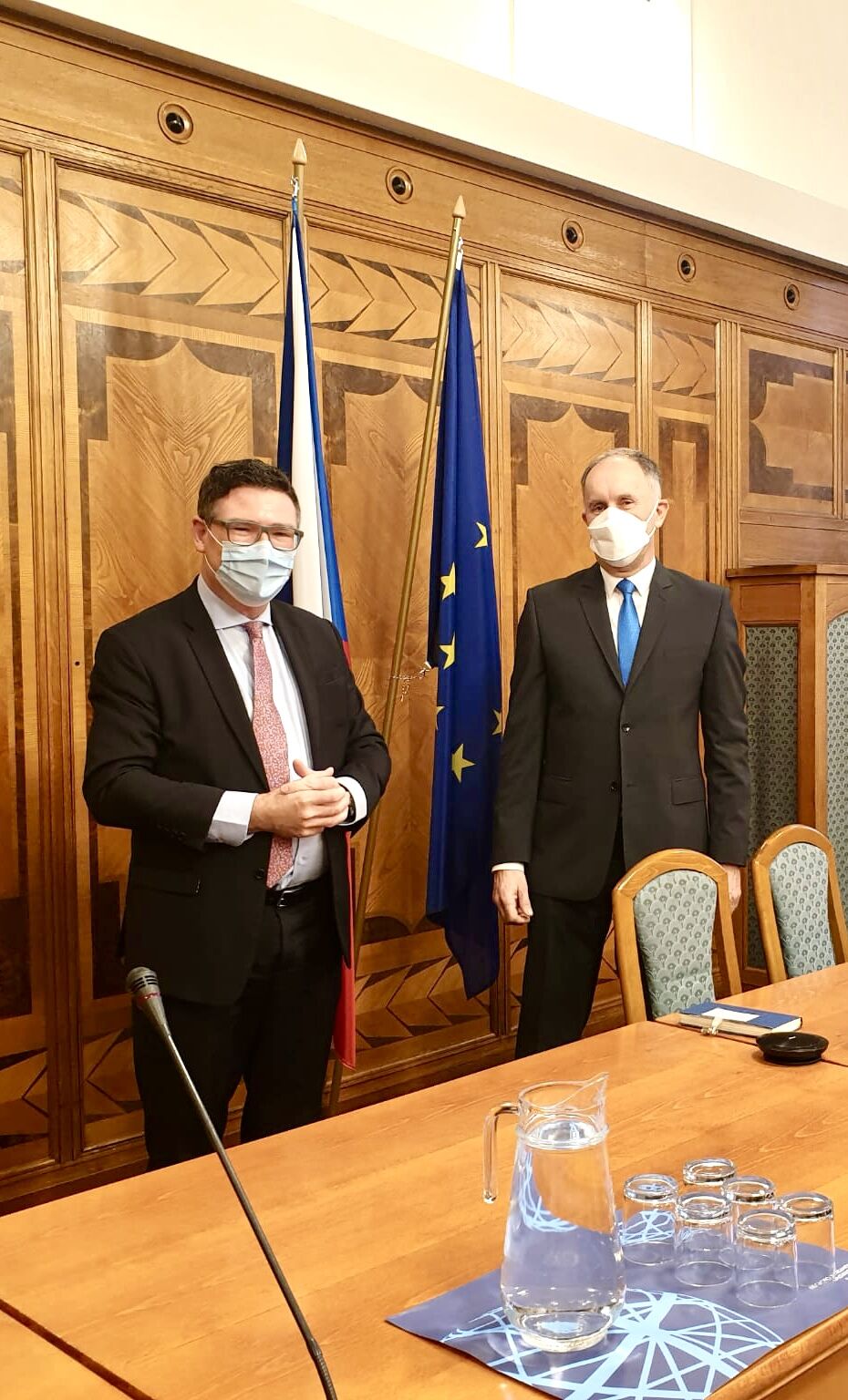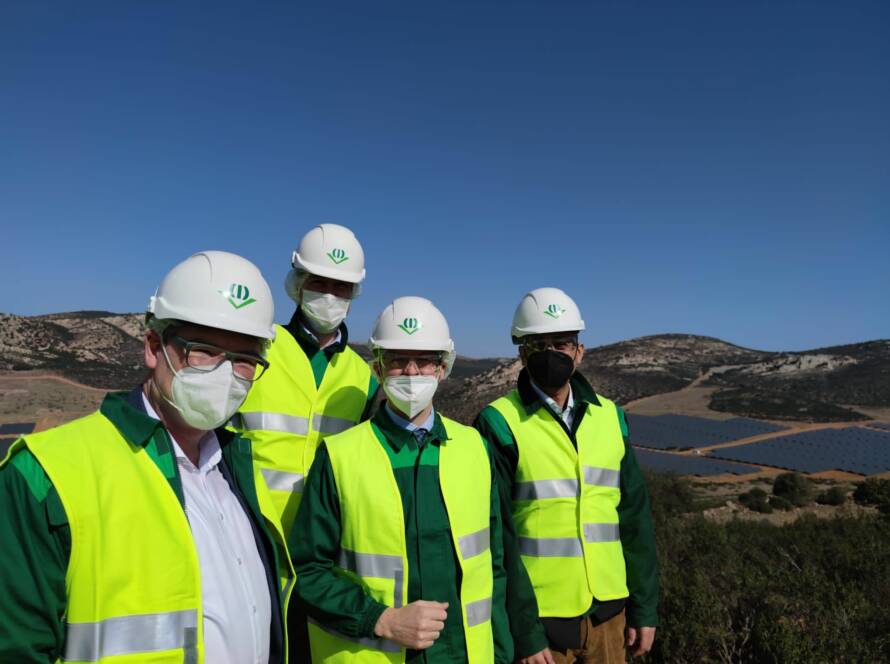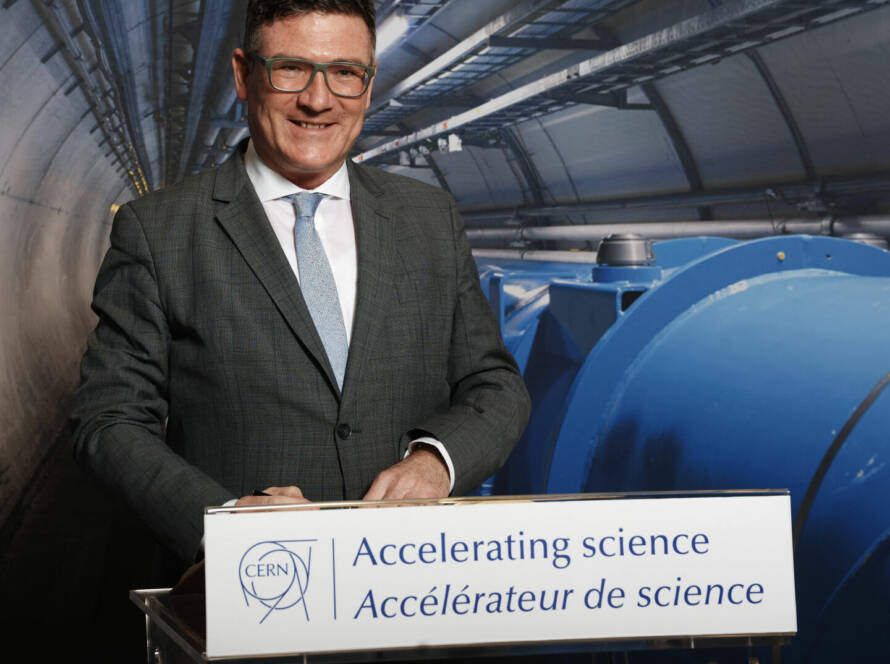How can the huge lignite field in the Usti region be used for the production of green hydrogen when lignite mining ends in 2024? The plan is: an up to 480 MW solar park with floating solar cells on the then flooded industrial sector. That was just one of the many questions I explored during a two-day visit to the Czech Republic. The reason for my trip was the adoption of the National Hydrogen Strategy by the Czech government last summer. The German Embassy put together a very intensive programme that brought me together with, among others, the Czech Hydrogen Commissioner, Petr Mervart, the responsible State Secretary in the Ministry of Climate Protection, as well as numerous representatives of the hydrogen industry. Among other things, I was able to get to know the two Czech IPCEI projects, the production of H2 intercity buses by IVECO BUS as well as a future network of hydrogen filling stations by ORLEN Unipetrol. Due to the close economic ties between the Czech Republic and Germany, there are naturally many points of contact for cross-border cooperation. We agreed that lighthouse projects in the field of cross-border mobility, for example H2 buses or trains, should be started relatively quickly. Incidentally, the Czech Republic, like southern Germany and Austria, also has only limited capacities of renewable energies to produce green hydrogen. Therefore, questions about the infrastructure for importing green hydrogen, e.g. from Ukraine or via a north-south pipeline from Rostock via Eastern Germany, were the subject of our discussions. To this end, I met with CEO Andreas Rau of NET4GAS, the Czech gas grid operator, and experts from the energy supplier ČEZ, among others. I also visited Hydrogen Valley in the Usti region on the Saxon border. There, 20 H2 buses have just been ordered by Solaris Bus & Coach for urban public transport; an H2 filling station is already planned. I was also very positively surprised by the strong research activities. I was able to see this for myself during visits to the University of Chemistry and Technology in Prague (UCT Prague), the Jan Evangelista Purkyně University in Ústí nad Labem University and the research centre UJV Řež, a. s. (Nuclear Research Institute Rez plc) were convincing. I was particularly pleased to meet Vladimir Matolin from the company LEANCAT s.r.o. The company was awarded the Innovation Prize at last year’s f-cell (this year: f-cell – October 4+5, 2022 Messe Stuttgart). Conclusion: many challenges, but also many opportunities for cooperation! And above all, many extremely committed actors!
